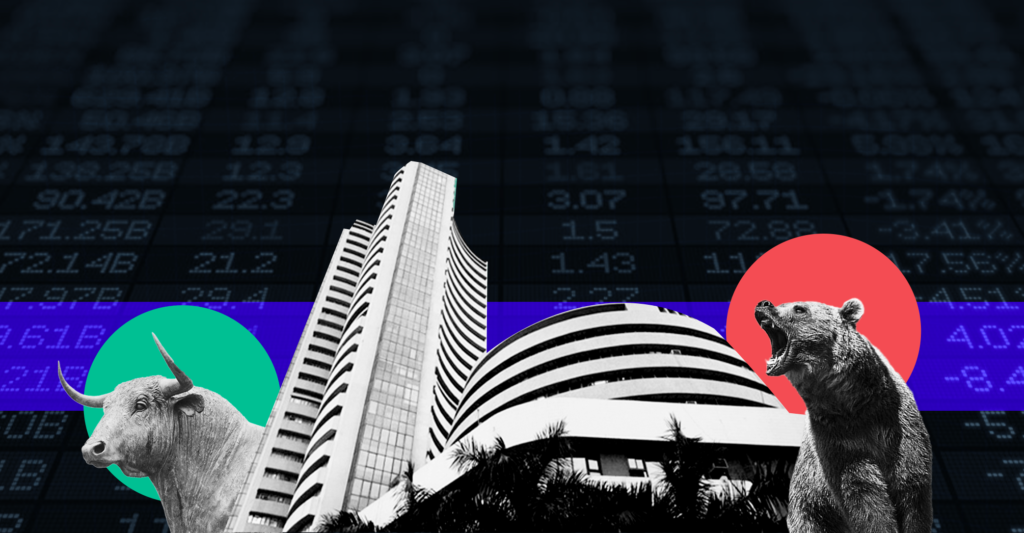Last Updated on May 24, 2022 by Aradhana Gotur
Dividends are a form of income for stockholders. They represent the part of the profit earned by the company which is distributed to its shareholders. Dividend declarations are solely at the company’s discretion. Moreover, dividends are usually paid only if the company earns a profit.
This dividend payment has important dates that investors should know when they are investing in stocks. One such date is the ex-dividend date. Let’s understand what it means.
Table of Contents
What is the ex-dividend date?
The ex-dividend date is the date when the stock trades at a value that does not include the value of the next dividend declaration. In other words, if you invest in a stock on or after its ex-dividend date, you would not be eligible to receive the dividend that is declared consequently.
By investing in a stock on or after its ex-dividend date, you lose the dividend that is declared Click To Tweet
Record date – a precursor to the ex-dividend date
To understand the ex-dividend date, you also need to understand the meaning of the record date.
The record date is when the company records the current list of shareholders. If you are in the list of shareholders as checked on the record date, you would become eligible to receive the next dividend that the company declares.
Compared to the record date, the ex-dividend date is set 1 or 2 business days before, depending on the stock exchange rules. This is because the settlement of trade takes 1 or 2 business days. So, after you buy or sell the stock, it might take 1 or 2 business days to reflect the data in the company’s accounts.
Here’s a quick example.
Assuming that it takes T+1 day for the trade to settle, here are the record and ex-dividend dates:
| Record date | 13 Aug 2021 – Friday |
| Ex-dividend date | 12 Aug 2021 – Thursday |
Now, if you buy the stock on 12 Aug, it will be delivered by 14 Aug (T+1 settlement). Thus, on the record date of 13 Aug, your name would not be amongst the shareholders of the company and you would not receive the dividend.
How does the concept of the ex-dividend date work?
Usually, a company announces its dividends at its annual general meeting. However, the dividend gets paid later on. In the meeting, the company declares the record date and the ex-dividend date.
To earn dividends, investors might start investing in the stock. This pushes the price of the stock and the stock starts trading at cum-dividend rate. However, investors can earn dividends only if they invest at the cum-dividend price, i.e. the price of the stock including dividend. Investors, thus, pay a higher value for the stock to enjoy dividend payouts.
However, investment on and after the ex-dividend date does not earn investors any dividends. As such, the dividend value is cut off from the share value and the share starts trading ex-dividend, i.e. the share price excludes the dividend amount. Investors who want capital growth and are not looking for dividends can invest in stocks trading ex-dividend on or from the ex-dividend date. They can, thus, avail of a lower price, albeit at the cost of the dividend income.
Here’s an example to simplify things.
| Dividend declared on | 1 Apr 2021 |
| Dividend value | Rs 2 per share |
| The market value of the stock before dividend declaration | Rs 100 |
| The market value after dividend declaration or cum-dividend value | Rs 102 |
| Dividend record date | 11 Jun 2021 |
| Ex-dividend date | 10 Jun 2021 |
| Ex-dividend value | Rs 100 |
If you buy the stock anytime after the 1st of Apr and the 10 of Jun 2021, you would have to pay Rs 102 per share (assuming the price remains constant till the ex-dividend date). This is the cum-dividend value of the stock. However, from the ex-dividend date, the stock would start trading ex-dividend. The price would exclude the dividend amount and you can buy at a reduced rate. However, you would lose out on the dividend declaration.
Importance of the ex-dividend date
The ex-dividend date is quite important from investors’ perspective. Investors looking to enjoy dividend declarations need to know the ex-dividend date to buy the stock before that. On the other hand, investors looking for long-term capital growth might want to invest after the ex-dividend date to get a reduced stock price. So, in either case, knowledge of the ex-dividend date is important for an informed investor.
Other important dates to know
Besides the ex-dividend date and the record date, you need to know two other dividend dates. These are as follows:
- Dividend announcement date: The date on which the company announces the value of dividend per share.
- Dividend payment date: The date on which the dividend is actually paid
The four dates appear in the following chronological manner:
- Dividend announcement date
- Ex-dividend date
- Record date
- Dividend payment date
The bottom line
The dividend is a way for companies to reward their shareholders for investing in them. It forms a part of the profit that the company earns and depends on the company’s dividend distribution policy. Dividends also influence the market value of the company’s stocks and so, they are declared with a lot of forethought. As an investor, you need to know the important dividend dates and what they mean so that you can make the right investment decisions.
The ex-dividend date is an important date that determines whether or not you would receive the next dividend payment. So, when investing in stocks, check the ex-dividend date and if you want to earn dividends, invest before this date.





